您的购物车目前是空的!
How to Become a Movie Writer
Have you ever dreamed of attending a Hollywood premiere for a film you wrote? If you’re passionate about movies and creative writing, screenwriting could be the perfect career path for you. While achieving success as a professional screenwriter requires both dedication and luck, there are practical steps you can take to improve your chances. If you’re eager to break into the industry, keep reading to discover answers to the most common questions aspiring writers ask!
How do I get better at screenwriting?

1. Write as Much as You Can
The only way to become a stronger screenwriter is through consistent practice. Whenever you come up with an idea for a script, try to expand it and add it to your portfolio. Over time, your writing will become more polished and professional-looking.
- Dedicate a block of time each day to writing.
- Industry professionals often expect to see multiple scripts, not just one. If you’ve finished your first script, start developing another to showcase your range.
📌 Subheading: Build a Consistent Writing Routine
Read more about developing a writing habit

2. Get Screenwriting Books to Improve Your Craft
Many experienced screenwriters share their expertise through books filled with tips, strategies, and formatting advice. Reading these resources will help you strengthen your storytelling and keep your scripts engaging.
Recommended books include:
- Story by Robert McKee
- The Anatomy of Story by John Truby
- Save the Cat! by Blake Snyder
📌 Subheading: Learn from the Experts
Explore top screenwriting books
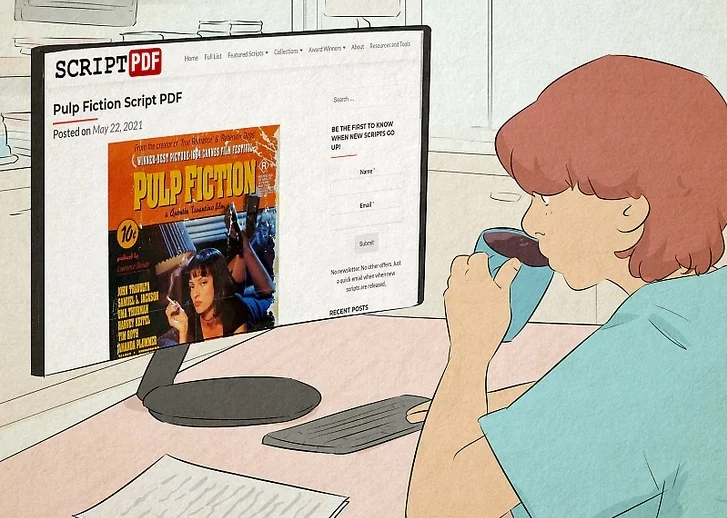
3. Read Scripts from Movies You Love
Studying existing screenplays is one of the best ways to understand structure, dialogue, and pacing. Many scripts are available for free online—simply search for the movie title followed by “screenplay PDF.”
- Pay attention to how dialogue flows and how action is described.
- Observe formatting choices and how they contribute to readability.
- Take inspiration from your favorite films while developing your unique style.
📌 Subheading: Analyze Scripts for Inspiration
Find free movie scripts online
How do I write a good screenplay?

1. Take time to outline your scenes so you nail down your story.
Your outline acts as the roadmap for your entire screenplay, listing every scene you plan to write. Use index cards or digital tools to jot down each idea, then arrange them into a logical sequence. Experiment with different scene orders to discover fresh and compelling ways to tell your story. Don’t worry if you don’t have every scene figured out—some will emerge naturally as you write. There’s no single industry standard for outlining, so choose the method that works best for you. Learn more about script outlines here.
📝 Subheading: Why Outlines Matter
An outline helps you stay focused, avoid plot holes, and maintain consistency throughout your script.
Reference: Field, Syd. Screenplay: The Foundations of Screenwriting. (Delta, 2005).
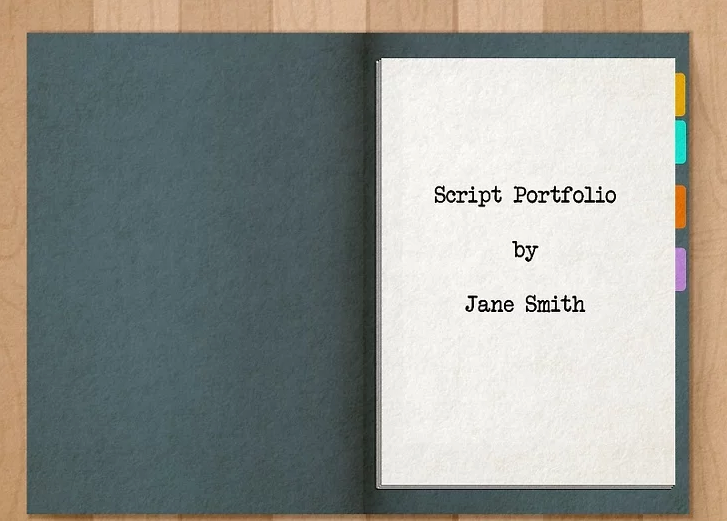
2. Follow a story structure to hit the dramatic beats of your script.
The 3-act structure is one of the most widely used frameworks in screenwriting. Arrange your scenes so the story flows logically, building tension until you reach the climax—the most dramatic moment of your screenplay. Conclude with a resolution that ties everything together. Don’t be afraid to experiment with alternative structures, such as non-linear timelines, to give your story a unique edge. Explore story structures here.
🎬 Subheading: The Power of Structure
A solid structure ensures your script remains engaging and emotionally impactful for audiences.
Reference: McKee, Robert. Story: Substance, Structure, Style and the Principles of Screenwriting. (HarperCollins, 1997).
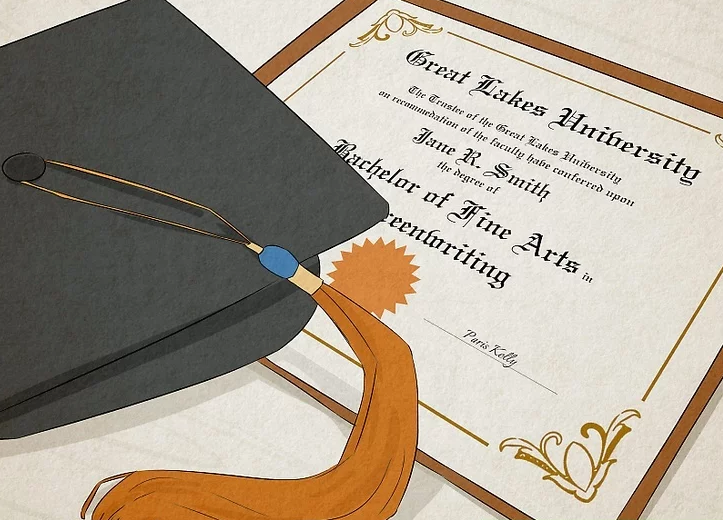
3. Use realistic and engaging dialogue to move your script along.
Dialogue forms the backbone of your screenplay, driving the story forward and revealing character. Ensure that each line spoken by your characters serves a purpose, moving the plot toward its next beat. Pay attention to how people speak in real life to make conversations feel natural. If you struggle with dialogue, use placeholders to capture the intent, then refine it later. For instance, writing “We have to get away from these zombies!” can serve as a temporary line until you polish it. Check out tips on writing dialogue here.
💬 Subheading: Writing Believable Dialogue
Do I need a degree to get into screenwriting?

4. Learn screenwriting online without a degree.
While attending film school can help you make connections, you don’t need a formal degree to become a successful screenwriter. Almost everything you need to know—from formatting to story structure—is freely available online. By learning at your own pace, you can save money and still gain the knowledge necessary to build a career in screenwriting. Read more about self-taught screenwriters here.
🎓 Subheading: Skip the Degree, Keep the Knowledge
Self-learning gives you flexibility while still exposing you to the same tools and techniques professionals use.
Reference: Field, Syd. Screenplay: The Foundations of Screenwriting. (Delta, 2005).
5. Listen to screenwriting podcasts for industry insights.
Podcasts are a powerful way to stay updated on the screenwriting world. Popular shows like Scriptnotes, The Writers Panel, and Draft Zero feature professionals sharing advice, experiences, and techniques that can elevate your writing. Tuning in regularly helps you learn industry expectations while sharpening your storytelling skills.
🎙️ Subheading: Learn From Working Writers
How do I get people to notice my scripts?

1. Post Your Script on The Black List
The Black List is a professional online platform that helps undiscovered screenwriters showcase their work to the film industry. By paying a fee, you can host your script on the site and receive reviews from industry readers to evaluate its market potential. Every year, The Black List publishes a curated list of highly rated scripts, many of which are later developed into feature films [1].
👉 Visit: The Black List Official Website
📝 Why It Matters
Getting noticed on The Black List can connect you with producers, agents, and studios looking for fresh voices.

2. Submit Your Script to Screenwriting Competitions
Screenwriting competitions give new writers a platform to be evaluated by professional judges, often leading to agency representation or career opportunities. It’s important to research competitions that fit the genre and tone of your script. Prestigious contests such as the Austin Film Festival Screenplay Competition and the Academy Nicholl Fellowships in Screenwriting are well-regarded stepping stones for emerging talent [2].
🎬 Why It Matters
Winning or placing in major competitions can dramatically raise your visibility in the industry and open doors to mentorship, representation, or film deals.

3. Create Short Films to Showcase Your Writing
Producing short films is a practical way to bring your writing to life, even with limited resources. Instead of attempting a high-budget science fiction epic, focus on smaller, achievable projects you can film with friends or basic equipment. Sharing your shorts on platforms like YouTube or Vimeo allows industry professionals and audiences to discover your work [3].
🎥 Why It Matters
A compelling short film can serve as your portfolio, attract collaborators, and even lead to festival screenings or professional networking opportunities.
References
[1] The Black List – https://blcklst.com/
[2] Austin Film Festival – https://austinfilmfestival.com/ | Nicholl Fellowships – https://www.oscars.org/nicholl
[3] YouTube – https://www.youtube.com/ | Vimeo – https://vimeo.com/
What is a screenwriting agent and will I need one?

1. Hire an Agent to Represent Your Screenwriting
A screenwriting agent is your key ally in navigating the film industry, helping you connect with studios and producers who are seeking fresh material. Agents leverage their professional network to identify opportunities that match your style and career goals [1].
🤝 Why It Matters
Having an agent can significantly increase your chances of getting your scripts read by the right people and can accelerate your career growth in the competitive screenwriting market.
2. Negotiate Contracts and Protect Your Interests
Agents assist in drafting and negotiating contracts with studios and production companies, ensuring that you receive fair compensation and proper credit for your work. Their industry knowledge helps you avoid pitfalls and secure the best possible deal [1].
📄 Why It Matters
By managing the legal and business aspects of your deals, your agent allows you to focus on writing while safeguarding your professional interests.
References
[1] Writers Guild of America – “Screenwriting Agents and Managers” – https://www.wga.org/the-guild/industry-resources/agents-managers
How do I get an agent?

1. Write compelling query letters to screenwriting and talent agencies.
Research several agencies to understand the type of clients they represent and see if your work aligns with their portfolio. In your letter, explain why the agent should consider representing you immediately. Include a brief summary of your script and a short personal bio so they get a clear idea of who you are. Always leave your contact information for follow-up.
Recommended Agencies
Some top agencies to contact include:

2. Connect with other professionals in the film industry.
Attend screenwriting conferences and film festivals to meet peers and industry insiders. Introduce yourself, share your experiences, and build genuine relationships. Consider internships or assistant roles at studios or production companies to gain direct access to industry networks.
Networking Tips
- Major cities like New York or Los Angeles offer more opportunities to meet agents, producers, and other writers.
- Consistently follow up with contacts you meet to maintain connections.

3. Hone your pitching skills for both yourself and your scripts.
It’s essential to communicate clearly and confidently. Practice explaining what makes you unique and how your story stands out. Keep your pitch concise, engaging, and easy to understand so agents or producers immediately grasp your concept.
Pitch Example
“My script is about a kid who travels back in time and gets stuck in the 1950s with teenage versions of his parents. The only way to return to the present is by making his parents fall in love.”
How do screenwriters get paid?
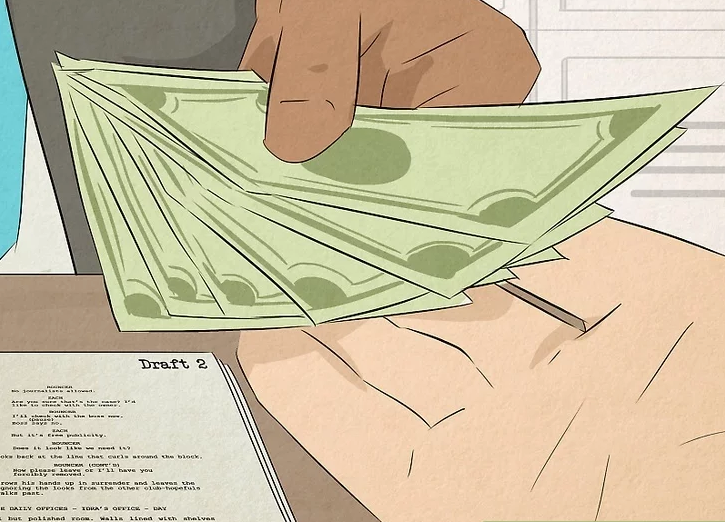
1. You’ll usually receive payment in installments for each draft of your script.
After signing a contract for your screenplay, you typically receive an initial portion of the payment upfront. As you submit each draft, additional installments are paid according to the contract terms. The total payments depend on your agreement and the number of drafts you are expected to deliver.
Payment Schedule Tips
- In some cases, a significant portion of the payment may not be received until the film finishes production.
- Always review your contract carefully to understand when and how payments will be made.
Reference:
Learn more about screenwriting contracts
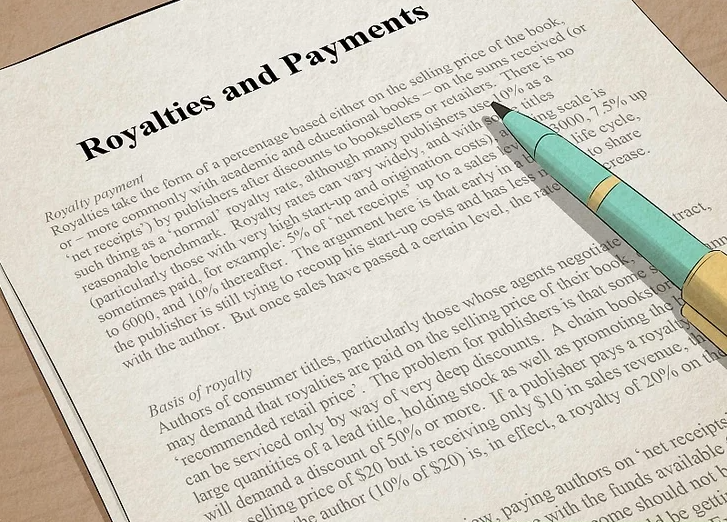
2. You earn royalty payments whenever your movie is shown.
Each time your movie airs on television, streaming platforms, or even on airplanes, you are entitled to a residual—a small percentage of revenue from that airing. The exact percentage is determined by your original contract, often around 1.2% of what the distributor earns from each showing.
Understanding Residuals
- Residuals continue to be paid throughout the lifespan of the movie’s distribution.
- Make sure your contract clearly defines residual rates for different platforms and screenings.
References:
Guide to residuals for screenwriters
How much does a screenwriter make?

1. The minimum payment for a script ranges from $79,500 to $149,106 USD.
While blockbuster multimillion-dollar deals exist for top screenwriters, beginners usually earn less. Your earnings depend on the type of screenplay you write and the terms of your contract. Once a screenplay is sold, the minimum payment is often set by a writers’ union.
Entry-Level Screenplay Earnings
- For writers contributing only to the story or treatment, typical earnings range from $36,000 to $59,500 USD.
- These amounts are proportional to your involvement in the script’s development.
2. Agents typically take a commission of around 10% of your earnings.
When represented by an agent, they usually deduct a standard commission from your payments for negotiating deals, contracts, and other opportunities.
Agent Commission Insight
- Ensure you understand your agent’s fee structure before signing any agreement.
- Commission percentages are usually negotiable for high-value or unique deals.
Reference: [19]
Learn more about screenwriting pay scales
Do I have to live in Los Angeles to be a screenwriter?

1. You don’t have to live in a major city, but it can open more opportunities.
Living in Los Angeles or other major film hubs increases your chances of networking with industry professionals and making valuable connections. If you’re just starting your first script, staying in your current location is fine. However, if you aim to pursue screenwriting as a professional career, relocating may significantly enhance your opportunities.
City Advantage for Screenwriters
- Major cities like LA offer access to agents, producers, workshops, and film events.
- Being physically present can accelerate your career growth compared to remote networking.
Reference: [20]
Learn more about living in LA for screenwriters